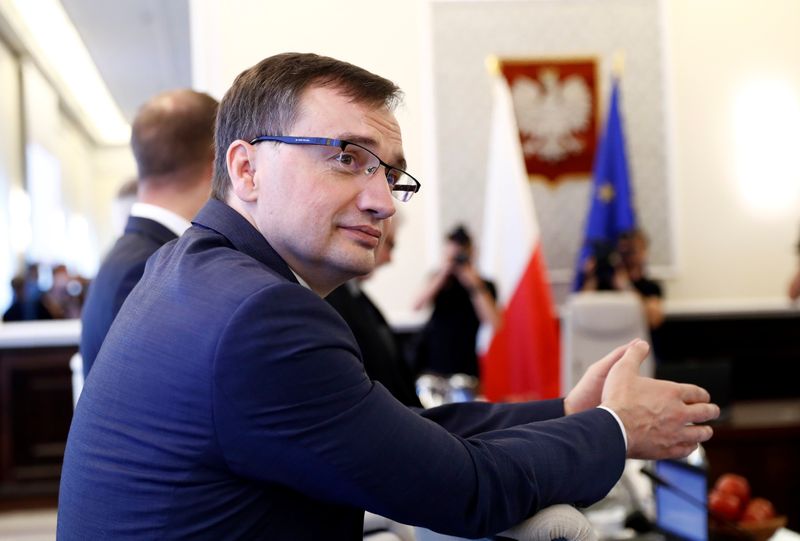WARSAW (Reuters) - Poland's conservative ruling party Law and Justice (PiS) distanced itself on Sunday from a proposal by the justice minister to withdraw from a European treaty on violence against women, saying not all in the coalition were in favour.
PiS and its coalition partners closely align themselves with the Catholic Church have previously criticised the Istanbul Convention as too liberal but not adopted any policy for a withdrawal.
On Saturday Justice Minister Zbigniew Ziobro, who represents a smaller right-wing party within the ruling coalition, said that his ministry would submit a request to the labour and families ministry on Monday to begin the process of withdrawing from the treaty.
Ziobro said that Poland has sufficient legal tools to protect victims of domestic violence and that the treaty violates parents' rights by requiring schools to teach children about gender.
But on Sunday PiS officials took a step back.
"Decisions have not been taken. This is not our common stance. The minister has some idea. If he submits (his proposal) we will analyse it," PiS spokeswoman Anita Czerwinska said.
Also the government spokesman Piotr Muller said the cabinet has not decided over the treaty.
Quitting the treaty would likely become another bone of contention between Poland and the EU, which has been critical of PiS' policies that the union said undermine democracy.
PiS has long complained about the Convention, which Poland ratified under a previous centrist government in 2015. The government says the treaty is disrespectful towards religion and requires teaching liberal social policies in schools.
It is unclear what the final government decision might be. PiS has pulled back from some of its proposals in the past, including a project to tighten already restrictive abortion rules.
Council of Europe Secretary General Marija Pejcinovic Buric said on Sunday that Poland should not withdraw from the treaty.
Formally, the parliament will have to adopt new legislation to withdraw from the Istanbul Convention, which will then need to be signed by the president, Andrzej Duda.

Duda has been critical of the treaty in the past.